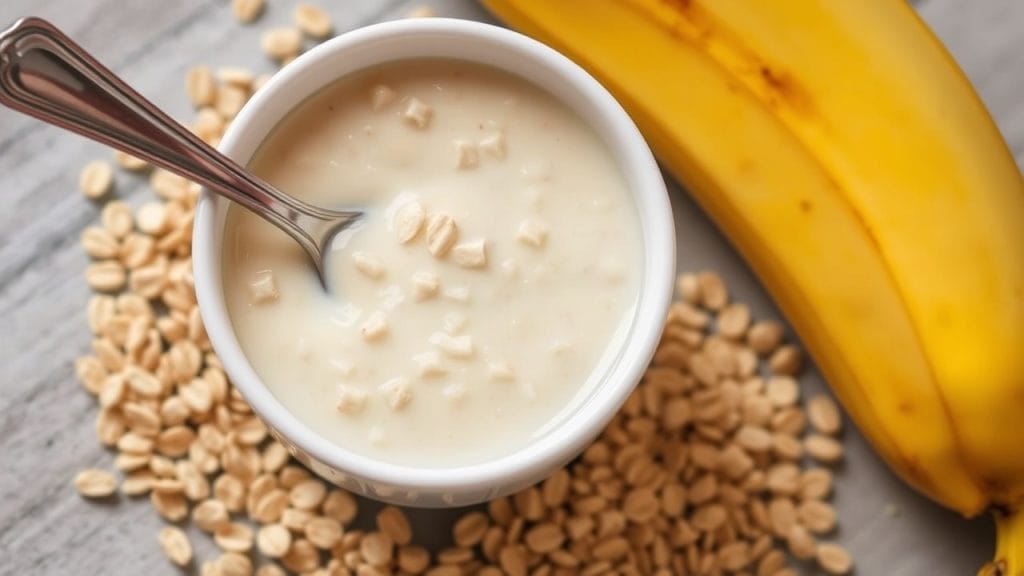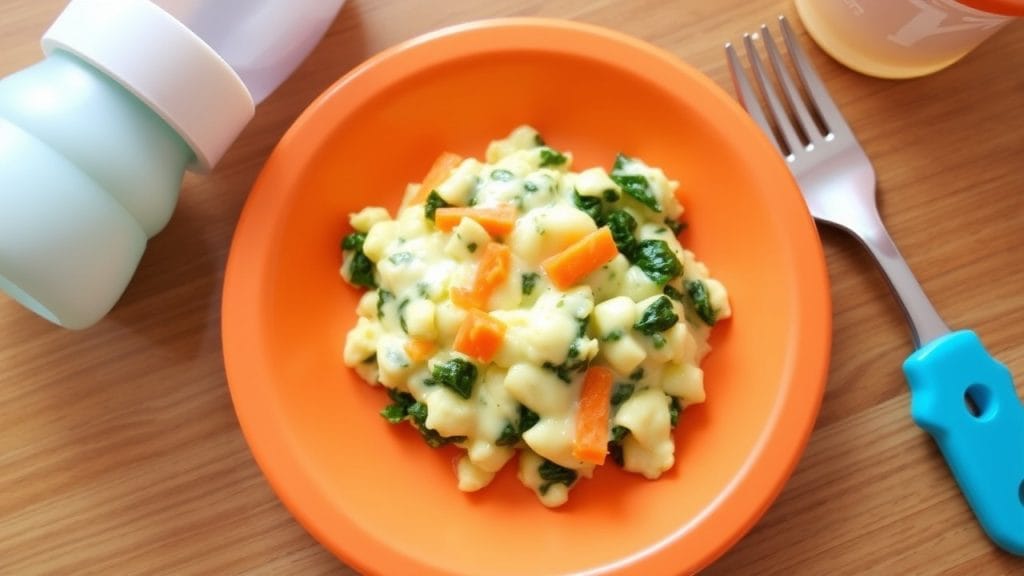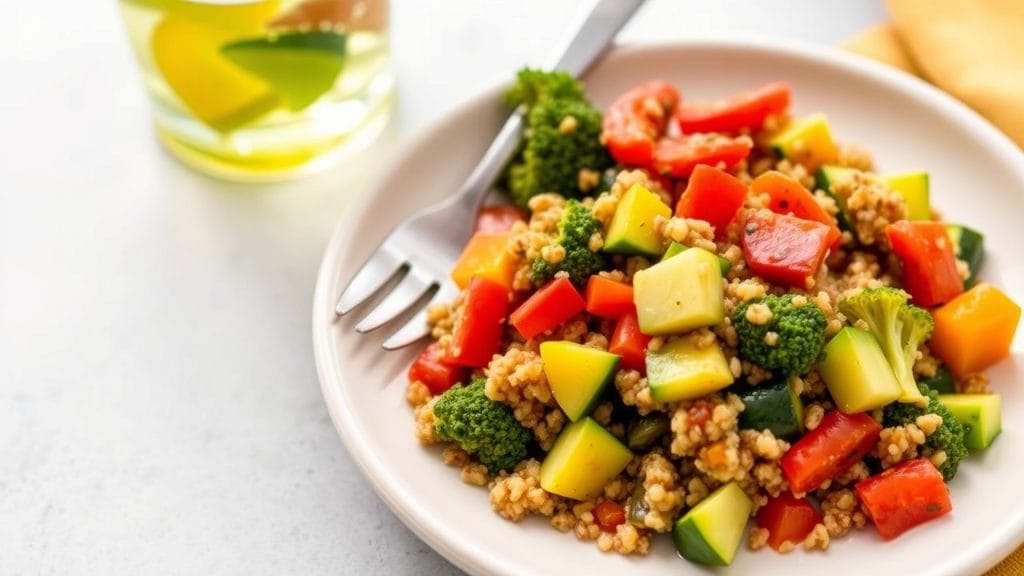Exploring nutritious Meal Ideas for Babies can be an adventure and a learning experience for parents. Ensuring that your little one gets the right nutrients is essential for their growth and development, but with so many options available, it’s important to focus on balanced meals. This guide will help you navigate through baby-friendly foods that are packed with nutrition and easy to prepare, setting the foundation for healthy eating habits.
Why Nutritious Meals Are Vital for Babies
Babies experience rapid physical and cognitive growth, especially during the first two years. Proper nutrition supports brain development, strengthens the immune system, and ensures they reach key developmental milestones. Without a well-rounded diet, babies may miss out on important vitamins, minerals, and macronutrients, which can affect their growth.
Here, we’ll explore various nutritious meal ideas for babies, tailored to their evolving needs as they grow. This list focuses on wholesome, natural ingredients that can be easily incorporated into their diets.
Starting Solids: When and How to Begin
The World Health Organization (WHO) and pediatricians recommend introducing solids to babies at around six months. By this age, most babies are ready for purees and mashed foods in addition to breast milk or formula. Starting too early or too late can affect their acceptance of new foods.
Signs Your Baby Is Ready for Solids
- Sitting upright with support: Babies should have good head control.
- Interest in food: If your baby starts watching you eat or grabbing food, it’s a good indicator.
- Loss of the tongue-thrust reflex: This reflex pushes food out of their mouth but fades as they approach six months.
First Nutritious Foods for Babies
When starting, focus on soft, easily digestible foods that are rich in essential nutrients like iron, calcium, and healthy fats. Here are some nutritious meal ideas for babies in the early stages:

1. Iron-Fortified Cereals
Iron is critical for a baby’s development, especially after six months when their stored iron levels decrease. Opt for single-grain cereals like oats or rice fortified with iron. Mix them with breast milk or formula for a smooth texture.
2. Mashed Avocados
Avocados are rich in healthy fats, which are crucial for brain development. Simply mash an avocado and serve it plain or mix it with a little breast milk to thin it out.
3. Pureed Vegetables
Start with nutrient-dense vegetables such as sweet potatoes, carrots, or peas. Steam and puree them until smooth, ensuring there are no lumps that could cause choking.
4. Bananas
Bananas are gentle on the stomach and provide a good source of potassium and vitamin C. Mash them with a fork and serve them as a simple, no-prep meal.
Gradually Expanding Their Diet
As your baby gets more accustomed to eating solids, you can introduce more complex foods, always ensuring the meals remain nutritious. At this stage, it’s important to introduce a variety of nutrient-rich foods to your little one’s diet. Consider adding proteins, whole grains, and a colorful assortment of fruits and vegetables to their meals.
5. Lentil Soup
Lentils provide a rich source of both protein and iron, making them a valuable addition to a balanced diet. Cook lentils until they are soft and blend them with vegetables like carrots and spinach for a nutrient-packed meal.
6. Eggs
Eggs provide high-quality protein and essential fats. Start by offering soft scrambled eggs or an omelet made with finely chopped vegetables. Eggs are a versatile option, whether scrambled, boiled, or made into mini frittatas.
7. Chopped Fruits
Introduce a variety of fruits, such as apples, pears, and berries. Ensure that they are peeled, steamed, and cut into small pieces to avoid eating hazards.
8. Whole Grains
Once your baby is ready for more texture, include soft-cooked whole grains like quinoa, barley, and couscous. These grains provide fiber and essential minerals. Mix them with vegetables or small pieces of soft-cooked chicken or fish for a well-rounded meal.
Meal Ideas for Older Babies and Toddlers
By 9 to 12 months, your baby’s meals can become more diverse. At this stage, they can handle slightly chunkier textures, finger foods, and a wider variety of ingredients. Nutritious meal ideas for older babies should include well-balanced dishes with carbohydrates, proteins, and fats to keep their energy levels steady.

9. Mini Turkey Meatballs
Turkey is a lean source of protein and can be served as soft, mini meatballs. Add finely grated carrots and breadcrumbs for texture, and serve with mashed or pureed vegetables.
10. Cheese and Vegetable Muffins
Combine grated cheese, eggs, and finely chopped vegetables like spinach and carrots into mini muffins. These are easy for little hands to pick up and are perfect for on-the-go meals.
11. Quinoa and Vegetable Stir-Fry
Cooked quinoa mixed with finely chopped steamed vegetables such as zucchini, bell peppers, and broccoli makes for a nutrient-rich dish. Add a little olive oil for healthy fats.
12. Salmon with Sweet Potato Mash
Salmon is a fantastic source of omega-3 fatty acids, which are essential for brain health. Cook it until it’s tender and serve with sweet potato mash for a nutritious meal that’s gentle on their developing digestive system.
Nutritional Considerations and Allergies
As you explore new foods for your baby, it’s important to be aware of common allergens such as dairy, eggs, nuts, and seafood. Introduce these foods one at a time, watching for any adverse reactions like rashes, vomiting, or difficulty breathing. Consult your pediatrician if you suspect an allergy.
Here are some tips for safely introducing potential allergens:
- Introduce new foods during the day. This way, you can monitor your baby for any reactions.
- Wait 3 to 5 days between new foods. This helps identify any food sensitivities or allergies.
Hydration and Fluids
Babies need to stay hydrated, but their primary source of fluids should be breast milk or formula during the first year. As they start eating solids, you can introduce small amounts of water, but avoid giving juice or sugary drinks as they offer little nutritional value.

Conclusion
Introducing nutritious meal ideas for babies is a rewarding journey that helps set the stage for healthy eating habits. Focus on variety, balance, and age-appropriate foods to ensure your baby gets the essential nutrients they need to grow and thrive. By offering a range of flavors and textures, you’ll not only support their physical development but also foster a lifelong love for nutritious, wholesome foods.
Whether you’re pureeing vegetables or preparing more advanced meals like quinoa stir-fries and turkey meatballs, the key is to keep things simple and nutritious. With these meal ideas, your baby will get the vitamins, minerals, and energy they need to explore their world and reach their developmental milestones.
